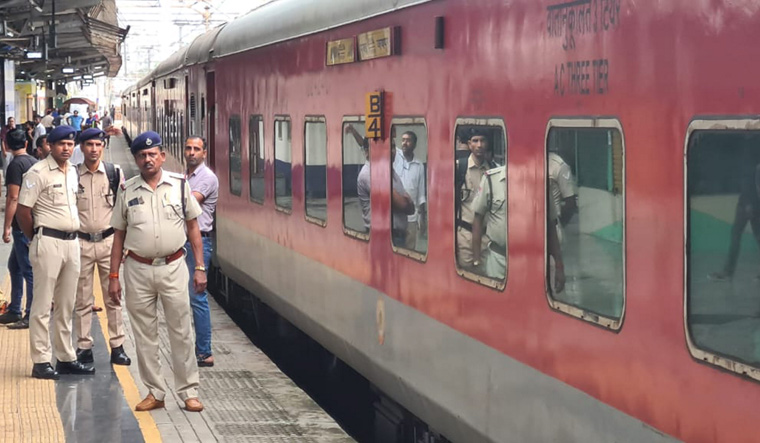
In a shocking and unfortunate incident, a Railway Protection Force (RPF) jawan opened fire on a Jaipur-Mumbai train, resulting in the tragic death of four individuals. The incident has sent shockwaves through the nation, and authorities are investigating the circumstances surrounding this dreadful event.
Unraveling the Tragedy: What Happened on the Train
The incident occurred on a routine journey from Jaipur to Mumbai when a seemingly ordinary train ride turned into a nightmare for the passengers on board. As the train was in motion, the RPF jawan, who was on duty to ensure the safety of the passengers, inexplicably brandished his firearm and began firing indiscriminately.
Loss of Innocent Lives: The Casualties and Impact
As a result of the indiscriminate shooting, four innocent persons tragically lost their lives. Panic and chaos ensued among the passengers as they tried to comprehend the gravity of the situation and sought safety amid the unfolding mayhem. The incident has left an indelible mark on the families of the deceased and has raised serious concerns about security measures on trains.
Investigation and Response by Authorities
Immediately following the incident, authorities took prompt action to apprehend the RPF jawan responsible for the shooting. Investigations into the motive behind this shocking act are ongoing. The Indian Railways, along with the RPF, have expressed their deepest condolences to the families of the victims and assured that every possible measure will be taken to prevent such incidents in the future.
Ensuring Passenger Safety: The Way Forward
In the wake of this tragic event, there is an urgent need to reevaluate and strengthen security protocols on trains. Passenger safety must be the topmost priority, and measures should be implemented to identify and address potential risks among the personnel responsible for ensuring the well-being of travelers.
1. Enhancing Training and Psychological Evaluation
One crucial aspect that requires attention is the training and psychological evaluation of RPF personnel. Regular and rigorous training sessions can equip them with the necessary skills to handle challenging situations effectively. Moreover, periodic psychological assessments can help identify any signs of stress or emotional instability, which might help prevent untoward incidents.
2. Implementing Surveillance and Monitoring Systems
The installation of advanced surveillance and monitoring systems on trains can significantly enhance security. High-quality CCTV cameras, strategically positioned throughout the train, can act as a deterrent to potential wrongdoers and also provide crucial evidence in case of any unfortunate incidents.
3. Encouraging Passenger Awareness
Passenger awareness plays a pivotal role in ensuring safety on trains. Railways should conduct awareness campaigns, both online and offline, to educate passengers about emergency protocols and how to respond to unforeseen situations. Additionally, encouraging passengers to report any suspicious activities promptly can be instrumental in preventing potential threats.
4. Collaboration with Local Authorities
To further bolster security measures, there should be seamless coordination and collaboration between railway authorities and local law enforcement agencies. This joint effort can lead to better intelligence gathering and proactive measures to tackle security challenges.
Conclusion: Moving Towards Safer Journeys
The tragic incident on the Jaipur-Mumbai train serves as a somber reminder that passenger safety on trains is of utmost importance and should never be taken lightly. It calls for immediate and comprehensive actions to prevent such occurrences in the future. By enhancing the training of personnel, implementing robust surveillance systems, raising passenger awareness, and fostering cooperation with local authorities, we can work towards creating a safer and secure environment for all travelers.
